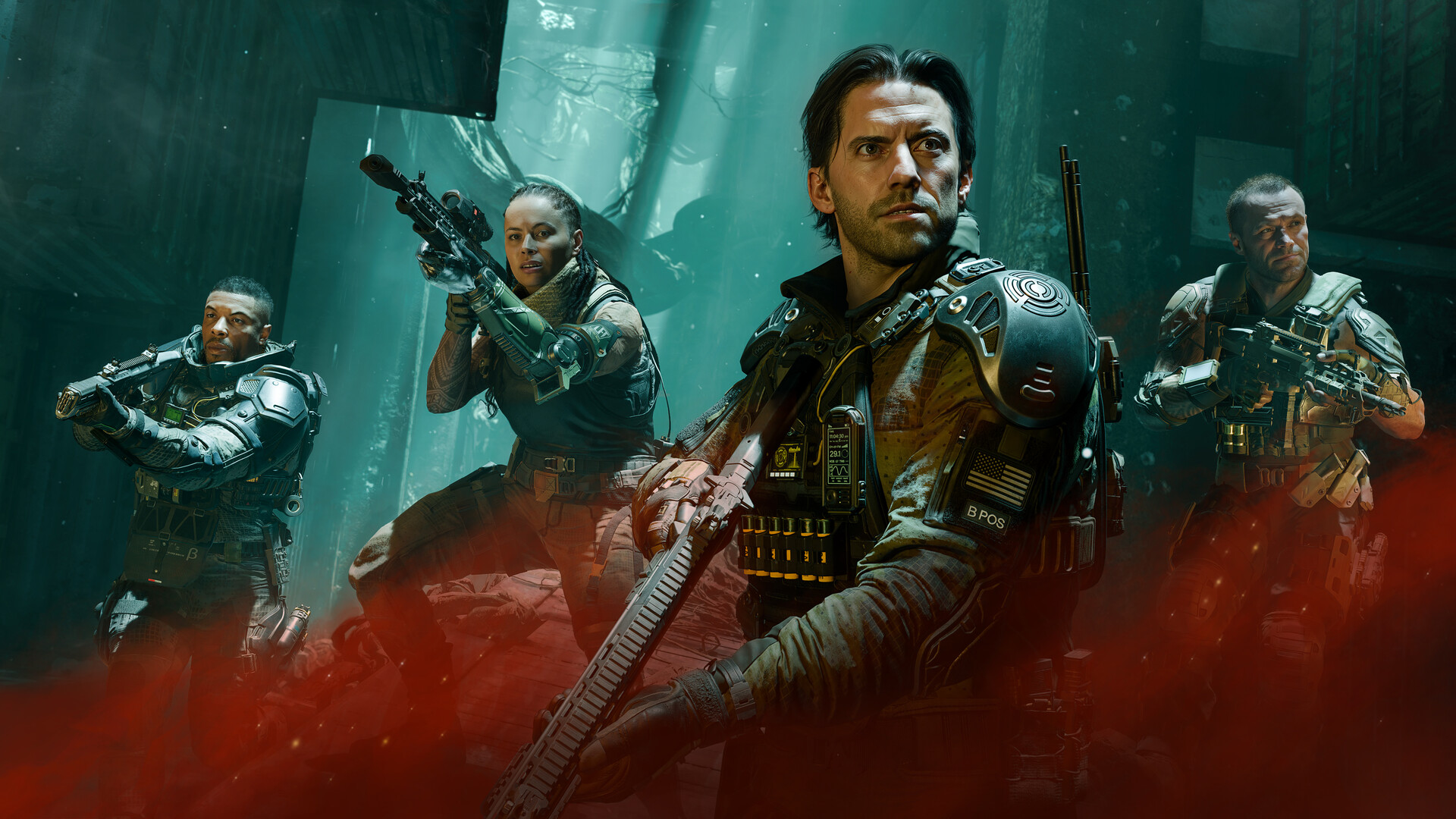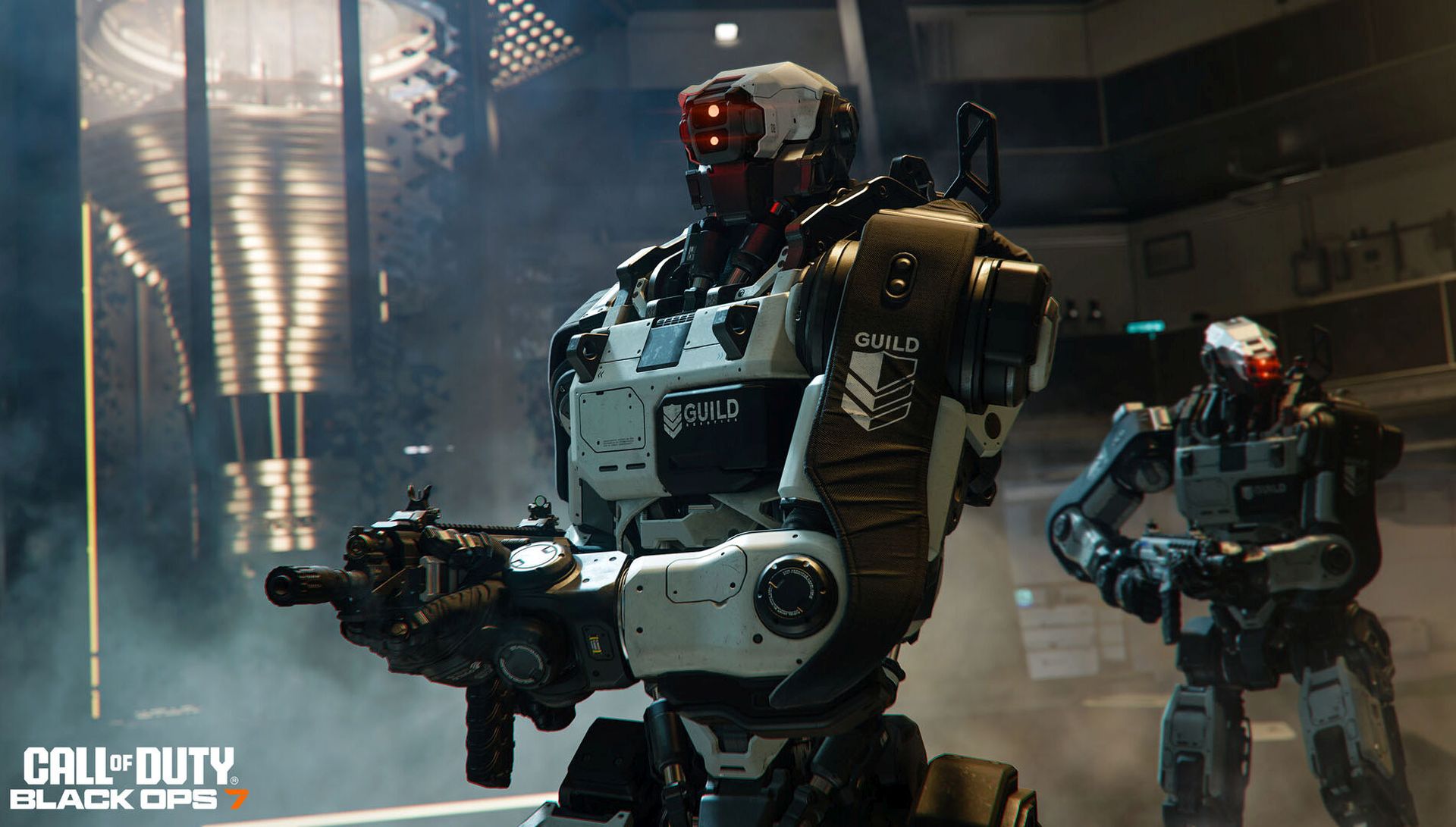Do you remember your first Call of Duty campaign? Mine was Call of Duty 2, back when Infinity Ward made games besides Modern Warfare and was led by Vince Zampella and Jason West (and nothing bad happened to either of them. Nope, nothing at all). The multiple campaigns, the renewed approach to World War 2, the stunning details, and perhaps most importantly, how it all came together in one cohesive package.
I remember other Call of Duty campaigns, even last year’s middling Call of Duty: Black Ops 6. Try as I might, however, nothing from Black Ops 7 registers in my brain. I know it’s set in 20235, despite how much Activision keeps saying it’s a follow-up to Black Ops 6, which was set in 1991. I also know that Menendez – did I spare or shoot him in 2012? – is back, and there’s an organization called the Guild, manufacturing robots, basking in the public praise and engaging in wholesome, definitely not evil activities.
[embedded content]
The beta? I played it, or at least as much as I could stomach, to know about wall-bouncing, Overload, D.A.W.G. (the Deployable Armored Weaponized Groundcraft, thank you very much), etc. Yet it feels like a blur – little more than impressions upon my brain. Giant machetes raining from the sky, twisting corridors, and four-player co-op (aka single-player without difficulty options) are all that really stuck out in what little we’ve seen of the campaign.
Any other year, this kind of Call of Duty experience, the so-called “biggest Black Ops ever”, would come and go for me. Yet, as we see Battlefield 6 selling more than seven million copies in three days (over ten million in its first month, if estimates are to be believed), and ARC Raiders delivering one of the highest rated multiplayer shooters in years and years (while also reportedly shifting 2.5 million in a week), the existence of Call of Duty baffles me at this point.
Now, we’re not discounting those who buy it every year, either out of habit or because the concept of shame has passed them by. I’m not hating on those who hop into their favorite undead-killing mode of choice or whittling away the hours in multiplayer, grinding out camos. Actually, I’m happy that they can complain less about skill-based matchmaking and celebrate persistent lobbies. Good changes that were demanded for years.
But is better late truly better than never? The Open Moshpit playlist only happened because of the absolutely abysmal beta reception, and keeping it in the full game feels more like a desperate move. One, I might add, that hasn’t translated to a massive sales bump by Steam standards. Currently 32nd on the top global-selling games chart…honestly, take your pick on the games that are commercially stomping it at this time. PEAK, Clair Obscur: Expedition 33, Dispatch, Rust, Escape From Duckov, Red Dead Redemption 2 (which is 80 percent off but still).
Even The First Descendant – The First Descendant, for crying out loud – is currently several places higher.
ARC Raiders and Battlefield 6 are the most notable ones, however. The former is the second-best-selling game on the storefront following months of positive buzz. The latter is the fifth best-selling – no small feat, considering criticism against the campaign, the small map sizes, and dozens of other issues important to diehard players. Even with the monetization and challenges annoying them enough to review-bomb Battlefield: RedSec, Battlefield 6 is still seeing hundreds of thousands of players daily.
Granted, Call of Duty has an edge on platforms – engagement-wise, Call of Duty HQ is second only to Fortnite in the United States on Xbox and PlayStation, according to Circana.
But the air around Black Ops 7 isn’t so much low as a pure vacuum.
Much as I’d like to attribute that to the franchise’s hubris, it’s also a testament to the level of competition out there. Battlefield 6 didn’t just launch knowing that Activision would be releasing two Black Ops titles back to back. It’s the result of years of development and changes, and even more years spent by DICE getting hammered over Battlefield 2042. The modern setting was the vision, but that didn’t stop it from conducting extensive tests worldwide and soliciting feedback from fans on how everything feels to play. Beyond all else, it recognised the need to return to what made the franchise great, and it certainly wasn’t Specialists, goofy skins, or a lack of tactical play.
Likewise, ARC Raiders didn’t suddenly get delayed for three years because Embark Studios – somehow, someway – knew that Call of Duty would fumble this hard in 2025. By its own measure, the original vision wasn’t great, and thus, it returned to the drawing board to rework it. What could have once been a quirky and fun yet also repetitive PvE shooter has now become a hotbed for stories and community building. Every expedition is a blank slate – an opportunity to meet shifty characters, friendly Raiders, and murderous robots, maybe even a mixture of all three. That it’s all wrapped up in a package that’s as welcoming for newcomers as it is for hardened extraction shooter fans is one of the many reasons why it’s resonating so well.
At this point, Call of Duty exists out of obligation. An obligation to Microsoft and its shareholders to offer some return on their acquisition of Activision. An obligation to those who buy one or two games yearly – you know the other ones – because of their name value and little else. And yes, an obligation to those of us who hope that maybe, just maybe, this year will be different. This year will be better.

Instead, this year has me thinking about Call of Duty 2 and how revolutionary it felt. The immersion of a game whose set pieces didn’t compete with Hollywood in terms of budget and sheer scale – it speaks to you in a way that’s so different from so many others, even if the industry as a whole was suffering from World War 2 fatigue at the time.
I’m not saying that Call of Duty has to return to that same setting and have us storm the beaches of Normandy with a level of fidelity that could fund Call of Duty 2 multiple times over. But even with all its attempts to swing for the fences – the 32-player extraction end-game that feels utterly pointless, the quote-unquote improved movement, the list goes on – the overall vibe feels tired. Burnt out.
We’re witnessing what’s essentially a multiplayer shooter party right now, that too in this age of live service disdain – and it feels great. Then there’s Black Ops 7 in the corner, counting the minutes before it can clock out until next year. For all of Activision’s pantomiming about the marketing and how it’s like dropping a Beyonce album, it’s incredible to witness what should be a multi-billion dollar franchise, which will still go on to make billions, don’t get me wrong – appear just…tired.
ARC Raiders and Battlefield 6 are stealing the show, drawing in those who wouldn’t usually indulge in either brand of multiplayer shooter action. But that Call of Duty, one of the biggest IPs in the world, just let them while continuing to rot in its own little bubble is as surreal as it is unsurprising. After all those years of controversies, backlashes, resurgences and bafflements, who would have thought that this year’s entry would be so utterly passé?
Note: The views expressed in this article are those of the author and do not necessarily represent the views of, and should not be attributed to, GamingBolt as an organization.



Comments are closed.